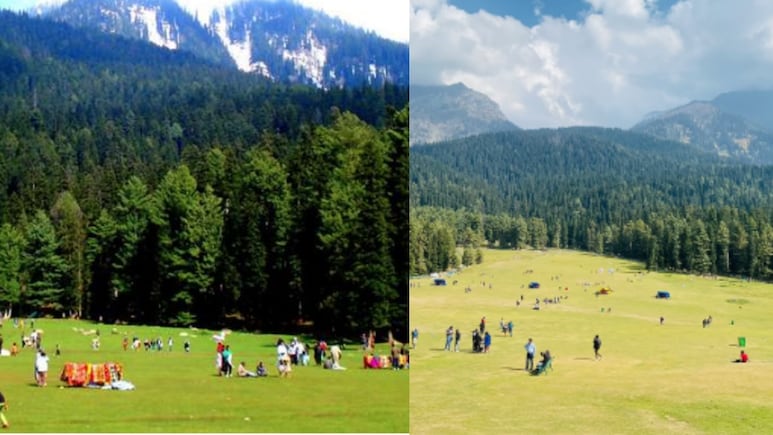Pahalgam Terror Attack: A National Security Failure or a Political Conspiracy?
Subtitle: Four days of silence — Can citizens feel safe under this government anymore?
Tags: #PahalgamAttack #SecurityFailure #ElectionPolitics #ModiGovernment #PulwamaParallels
Introduction
The deadly terrorist attack in Pahalgam on April 10, which claimed the lives of 26 civilians and injured dozens, has left the nation reeling in shock and fear. Even after four days, no senior government official has accepted responsibility, nor has there been any public accountability. In the absence of answers, questions loom large:
Is this the failure of Prime Minister Narendra Modi’s leadership, a lapse by national security agencies, or a result of deeper political maneuvering amid forthcoming elections?
Pahalgam attack: Why were security forces not there? Opposition asked sharp questions to the government
Opposition’s attack: No silence, we want answers
In the all-party meeting called by Defense Minister Rajnath Singh and Home Minister Amit Shah on Thursday evening, the opposition asked sharp questions to the central government about the Pahalgam terrorist attack. 26 civilians lost their lives in this attack.
An Election-Season Attack: Coincidence or Calculated Chaos?
The timing is suspicious. With key elections approaching in Bihar and West Bengal, political analysts are drawing uncomfortable parallels with the Pulwama attack of 2019, which had dramatically altered the electoral atmosphere in favor of the ruling party.
Senior political analyst Praveen Verma notes:
“Election seasons often see a sudden surge in nationalist sentiment driven by incidents like this. It’s crucial to ask why security fails precisely when it matters the most.”
Security Lapses: How Could It Happen in Pahalgam?
Pahalgam is a highly sensitive tourist destination, usually under strict security cover. Yet attackers infiltrated, executed a deadly strike, and escaped without interception.
Key security failures include:
- Ignored Intelligence Inputs:
Sources confirm that RAW and IB had circulated warnings about heightened militant activity in South Kashmir two weeks prior. These inputs failed to trigger heightened ground-level security. - Local Collusion Suspected:
Investigators suspect that certain “tour operators” or “guides” provided critical logistical support to the attackers. - CCTV Footage Disruption:
CCTV cameras covering the attack zone were either tampered with or mysteriously malfunctioned — indicating possible sabotage.
Retired DGP and security expert Vijay Chaudhary says:
“Such a coordinated attack without local facilitation is almost impossible. There is a serious systemic breakdown.”
Ground Reports: Fear, Anger, and Abandonment
Our field correspondent Umar Bashir reporting from Pahalgam found:
- Shops shut, tourist bookings canceled, and a heavy army presence.
- Several young locals detained for questioning.
- Eyewitnesses claiming police patrols were irregular and warnings about suspicious movements the night before were ignored.
Local resident Imtiaz Mir said:
“We informed police about three suspicious individuals the previous night. They dismissed it casually. Now we are mourning our dead.”
Government’s Response: Silence and Sorrow, But No Accountability
While PM Modi and Home Minister Amit Shah tweeted condolences, no press conference or public address has been made so far.
A senior Home Ministry source, speaking anonymously, admitted:
“The focus is currently on damage control and intelligence gathering. Public accountability will be considered later.”
Meanwhile, opposition leaders have lashed out:
Congress leader Jairam Ramesh posted,
“Whenever there’s a Chinese intrusion or a terror attack, Modi goes silent. This is not leadership. This is abdication.”
The Conspiracy Angle: Election Nexus?
Multiple political commentators are raising concerns that terror attacks conveniently altering public discourse ahead of elections cannot be treated as mere coincidence anymore.
Senior journalist Seema Tripathi writes:
“There’s a discernible pattern: major terror attacks occur before elections, manufacturing an environment of fear and heightened nationalism. It’s time we investigate deeper.”
Sources in opposition circles claim that government agencies might be deliberately allowing intelligence to be “missed” — a dangerous game that risks civilian lives for electoral gain.
Social Media Erupts: “We Want Accountability, Not Condolences”
- #SecurityFailure
- #ModiSilentAgain
- #WhoIsResponsible
- #NoMorePulwamaPolitics
- #CitizensNotCollateral
Citizens have flooded social media demanding answers.
@VoiceOfIndia tweeted:
“Terror strikes again. Politicians tweet condolences. No one resigns. No one is punished. How long will this cycle continue?”
@SanaKashmir_ posted:
“The blood of Pahalgam is on your hands. Not just the terrorists, but those who failed to protect us.”
Conclusion: Citizens Demand More Than Lip Service
The Pahalgam attack lays bare the deep cracks in India’s national security apparatus and raises troubling questions about the priorities of its political leadership.
In a true democracy, accountability isn’t optional — it’s essential.
Until those responsible for security failures are held answerable, citizens will continue to feel unsafe, and democracy will continue to erode under the weight of manufactured narratives.


